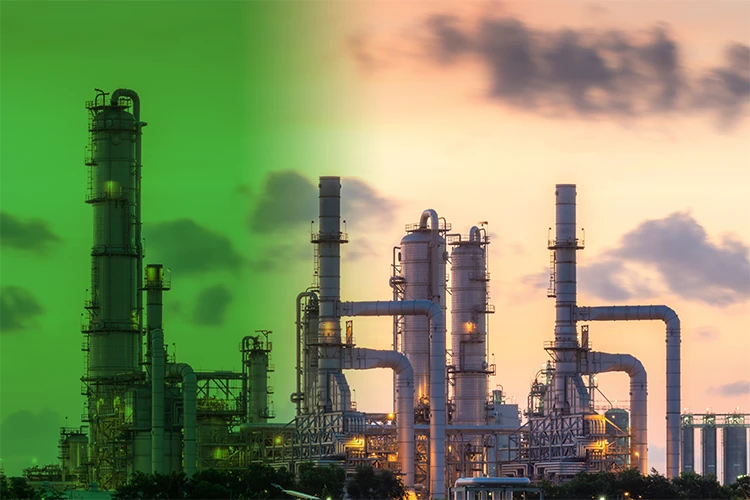
Marco Magrini starts the New Year with some positive thinking on renewable energy and the changing climate
Climatewatch
Now is the time for New Year’s resolutions – the recurring and fleeting fashion of projecting a better self into the future. In the same seasonal spirit, for once, this column will mostly refrain from recounting the troubles of the climate crisis and try an exercise in positive thinking instead.
Over the past decade, ‘the growth of renewable energy has consistently and dramatically outperformed all expectations,’ reads a recent report from McKinsey. Current projections on worldwide solar energy capacity by 2030 are 30 times larger than those forecasted in 2006. This could also be an underestimate, thanks to falling prices and better technology. And the same could be said about wind energy, whose current projections are already four times larger than in the past. According to McKinsey, by 2026, the global capacity of renewables will surpass five terawatts. Ten years later, clean energies will generate 60 per cent of the world’s electricity. ‘How much faster can they grow?’ asks the rather buoyant report. ‘The answer is: faster than you think they can.’
World governments may not be leading the way, visibly and stealthily restrained by the well-financed fossil fuel lobby, yet clean energy is growing despite their worst efforts. Institutional investors and private-equity firms are making sure to include it in their strategies. And the oil and gas majors have begun (albeit too late) to diversify their energy portfolios (albeit too little) with renewables.
At the same time, the steel and cement industries are eyeing new solutions, such as green hydrogen, to alleviate their staggering emissions. Both the shipping and aviation industries are experimenting with a less-carbon-intensive fuel mix. They all know that climate change is happening and that they’ll be compelled to decarbonise one day. Not to mention the automobile sector, where the demand for electric vehicles is strong and getting stronger. At the end of 2022, sales of battery-powered cars were projected to reach ten million units, up from 6.1 million in 2021, an astounding jump. In the first half of the year, 13 out of every 100 cars sold worldwide were electric, revealed the Zero-Emission Vehicles Factbook, published by BloombergNEF during COP27 in Sharm El Sheikh. ‘Global lithium-ion battery manufacturing capacity increased 38 per cent since 2021, and overall spending on clean road transport worldwide is set to exceed US$450 billion in 2022,’ it adds. China, Europe and the USA – in this order – are by far the largest markets.
MORE CLIMATEWATCH COLUMNS FROM MARCO…
As the effects of the climate crisis are becoming more and more evident, people’s minds and spending habits also appear to be changing. Propelled by the energy crisis, households have been investing in solar photovoltaics and heat pumps, a more climate-friendly solution to gas heating. According to a special report by the International Energy Agency, ‘global heat pump sales rose by nearly 15 per cent in 2021, led by the European Union, where they rose by around 35 per cent. Sales in 2022 are set to hit record levels.’ Thanks to falling prices and government incentives, ‘annual sales of heat pumps in the EU could rise to seven million by 2030’. That could be a huge saving in gas consumption, and in carbon emissions.
While global awareness about the trouble with fossil fuels is clearly growing, the same can’t be said about beefsteaks and hamburgers. Around 14.5 per cent of anthropogenic greenhouse-gas emissions come from the livestock industry, a bigger share than the transport industry. Not only do animal farms emit methane, but the felling of forests to make space for animal-feeding crops is the ultimate folly. Meat consumption is still rising worldwide, yet a study published by The Lancet in 2021 testified that there are signs of more conscious consumer behaviour in the UK, and likely in Western Europe.
Yes, I know, the number of bad climate news stories usually outstrips the good ones. Yet, we can’t help but face the climate crisis with a sense of urgency, but not despair; with hope and action, not in passive resignation. Such a sentiment would be a nice addition to everyone’s New Year resolutions.









